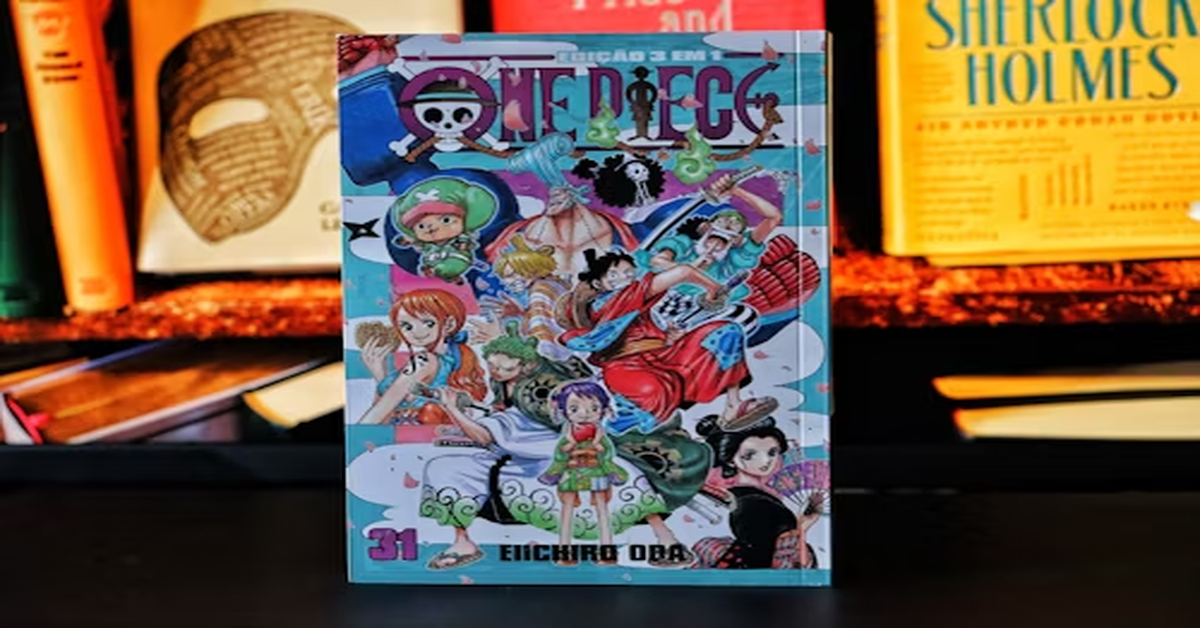
In the digital era, storytelling has expanded far beyond traditional publishing houses and bookstores. The globalization of entertainment, especially Japanese manga and Korean manhwa, has created international demand for works that are often published only in their original languages. This demand has led to the rise of scanlation communities. The term “Olympus Scanlation” can be understood as a group, identity, or symbolic label within the wider scanlation ecosystem. While at first glance it may seem like another fan-driven project, its meaning extends deeper into the realms of culture, creativity, community, and technological adaptation.
Scanlation—short for “scan” and “translation”—is the process by which fans scan physical or digital comics, translate them into other languages, and distribute them to a global audience. Within this framework, Olympus Scanlation can be interpreted as a distinctive effort or group aiming to bridge the cultural and linguistic divide that separates readers from stories. To appreciate Olympus Scanlation fully, one must explore not only the technical aspects of the work but also the cultural and ethical debates that surround it.
This article will dive deeply into the meaning, purpose, advantages, processes, challenges, and future of Olympus Scanlation, offering clarity for newcomers and organized insights for those already familiar with the topic.
What is Scanlation?
Before understanding Olympus Scanlation, it is vital to unpack the general concept of scanlation itself.
Definition:
Scanlation is the fan-driven act of scanning comics (manga, manhwa, or webtoons), translating them into another language, editing the images, and releasing them online.
Key Steps in the Process:
- Scanning: Physical or digital comic copies are converted into high-quality images.
- Cleaning: Images are edited to remove original text, blemishes, or print marks.
- Translation: Dialogue and narration are translated by bilingual fans.
- Typesetting: Translated text is placed into speech bubbles and narration boxes.
- Proofreading: Final checks for accuracy, spelling, and readability.
- Distribution: The finished scanlation is uploaded for online communities.
In this context, Olympus Scanlation represents either a scanlation group or a thematic label associated with this cultural practice.
Olympus Scanlation – Possible Interpretations
The phrase Olympus Scanlation may hold symbolic meaning. Olympus, in Greek mythology, represents a sacred mountain where gods reside. Within the fan translation world, Olympus could symbolize excellence, high standards, or a community striving toward the peak of quality work.
Therefore, Olympus Scanlation can be interpreted as:
- A scanlation group striving for excellence in translation quality.
- A metaphorical term representing the pinnacle of fan-driven cultural exchange.
- A community name uniting individuals passionate about manga and storytelling.
Regardless of interpretation, the essence remains the same: Olympus Scanlation serves as a bridge connecting stories across linguistic and cultural barriers.
The Role of Olympus Scanlation in Manga Communities
Olympus Scanlation plays an important role in global fan culture. Without scanlation groups, many readers would never encounter lesser-known works that publishers do not localize.
Core Functions:
- Accessibility: Making manga available to non-native speakers.
- Cultural Sharing: Preserving nuances of storytelling for international readers.
- Community Building: Creating online forums and fan spaces.
- Preservation: Archiving works that might otherwise disappear.
Table: Olympus Scanlation’s Role in Communities
| Function | Example | Impact |
|---|---|---|
| Accessibility | Translating niche manga | Expands global readership |
| Cultural Sharing | Maintaining honorifics and idioms | Readers experience authentic storytelling |
| Community | Forums and fan pages | Strong fan engagement |
| Preservation | Digitizing old works | Protects cultural heritage |
This illustrates how Olympus Scanlation provides value beyond entertainment, shaping communities and preserving artistic diversity.
Benefits of Olympus Scanlation
Olympus-Scanlation offers numerous benefits that extend to readers, creators, and the cultural ecosystem at large.
- Democratization of Access: Readers worldwide gain access to manga not officially translated.
- Promotion of Creativity: Volunteer translators and editors develop language, editing, and design skills.
- Cultural Exchange: Readers learn about Japanese, Korean, or Chinese cultures through translated texts.
- Fandom Strengthening: Fans unite across borders with shared enthusiasm.
- Pathway to Official Releases: Popularity from scanlations sometimes pushes publishers to license titles.
Challenges Faced by Olympus Scanlation
Despite its benefits, Olympus Scanlation faces challenges, both ethical and practical.
- Copyright Concerns: Scanlation often involves distributing works without permission, raising legal issues.
- Quality Variability: Not all translations maintain accuracy or readability.
- Sustainability: Scanlation is voluntary, leading to burnout among contributors.
- Technological Demands: Requires advanced software for image editing and cleaning.
- Publisher Conflicts: Some publishers see scanlation as competition.
Table: Challenges in Olympus Scanlation
| Challenge | Cause | Impact |
|---|---|---|
| Copyright | Lack of licensing | Risk of takedowns |
| Quality | Volunteer-based skills | Inconsistent reader experience |
| Sustainability | No financial backing | Project delays or abandonment |
| Technology | Need for advanced tools | Learning curve for volunteers |
| Publisher Conflict | Competing interests | Strain between fans & industry |
The Process of Olympus Scanlation in Detail
While general scanlation steps have been explained earlier, Olympus-Scanlation may distinguish itself through higher standards of quality.
1. Source Acquisition
Securing raw manga copies, often purchased from stores or digital platforms.
2. Cleaning and Redrawing
High-quality editing removes original text and redraws artwork seamlessly.
3. Translation Philosophy
Olympus-Scanlation might balance literal translations with readability, preserving cultural context while ensuring flow.
4. Typesetting Excellence
Using professional-style fonts and bubble placements for natural reading.
5. Team Collaboration
Working with proofreaders, editors, and community feedback.
This process ensures that Olympus-Scanlation projects are both accurate and immersive.
Olympus Scanlation vs. Official Translations
| Aspect | Olympus Scanlation | Official Translation |
|---|---|---|
| Cost | Free for readers | Paid |
| Speed | Often faster | Dependent on publisher |
| Quality | Varies | Standardized, professional |
| Availability | Wide, niche works included | Limited to popular titles |
| Cultural Accuracy | Often preserves honorifics | Sometimes localized heavily |
This comparison shows how Olympus-Scanlation fills gaps left by official publishers, especially for lesser-known works.
Cultural Impact of Olympus Scanlation
Olympus Scanlation represents more than translation—it reflects cultural resilience and global curiosity. By translating and sharing stories, scanlators promote cross-cultural literacy. Readers are introduced to traditions, humor, idioms, and artistic styles far beyond their own backgrounds.
Moreover, Olympus-Scanlation may inspire young readers to learn Japanese, Korean, or Chinese, creating a ripple effect of linguistic curiosity. It also fosters an appreciation for global artistic traditions.
The Ethical Debate
The most heated discussion surrounding Olympus-Scanlation is ethics vs. necessity.
- Supporters argue: Without scanlations, many works would remain inaccessible to the world.
- Critics argue: It undermines the financial rights of original creators.
A balanced perspective acknowledges both sides: while Olympus-Scanlation provides cultural access, it also highlights the urgent need for publishers to speed up official translations.
The Future of Olympus Scanlation
Olympus Scanlation’s future lies in adaptability. With the rise of AI-based translation tools, machine learning may assist in faster draft translations, while humans polish the final product. Communities may also grow more professional, collaborating with publishers rather than working against them.
Potential directions include:
- Partnerships between scanlators and publishers.
- Integration of AI with human editing.
- Expansion into multimedia translations like webtoons or light novels.
- Greater focus on ethical guidelines.
Conclusion
Olympus Scanlation embodies the spirit of global fandom, cultural curiosity, and creative collaboration. While rooted in fan-driven effort, it symbolizes the collective desire for storytelling without borders. By offering access, community, and preservation, Olympus-Scanlation serves as a critical player in the spread of manga and comics worldwide.
Yet, it is not without its controversies. Copyright issues, sustainability challenges, and ethical debates continue to surround it. Still, Olympus Scanlation highlights a broader truth: readers everywhere crave stories that transcend language and geography.
As the digital world matures, Olympus-Scanlation may evolve from a volunteer-driven practice to a recognized form of cultural collaboration. In doing so, it will continue to shape not only how stories are read but also how communities form around shared passion.
FAQs
1. What is Olympus Scanlation?
Olympus Scanlation refers to a scanlation initiative or group aiming to translate, edit, and share manga or comics globally.
2. Why is Olympus Scanlation important?
It provides access to works not officially translated, supports cultural sharing, and strengthens fan communities.
3. Is Olympus Scanlation legal?
Legally, scanlation often exists in a gray area due to copyright restrictions, though it is widely practiced.
4. How is Olympus Scanlation different from official translations?
It is free, often faster, and covers niche works, but official translations usually guarantee standardized quality.
5. What does the future hold for Olympus Scanlation?
Future directions may include AI-assisted translations, partnerships with publishers, and broader cultural collaborations.







